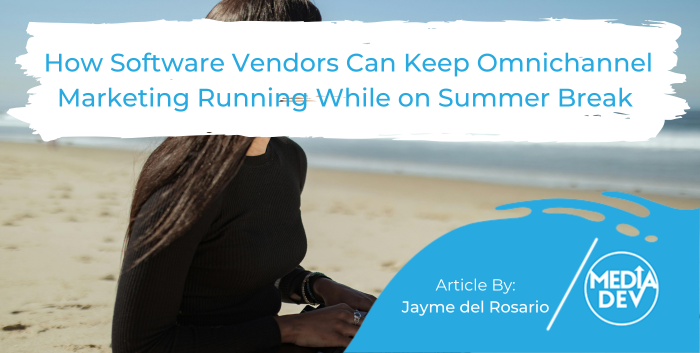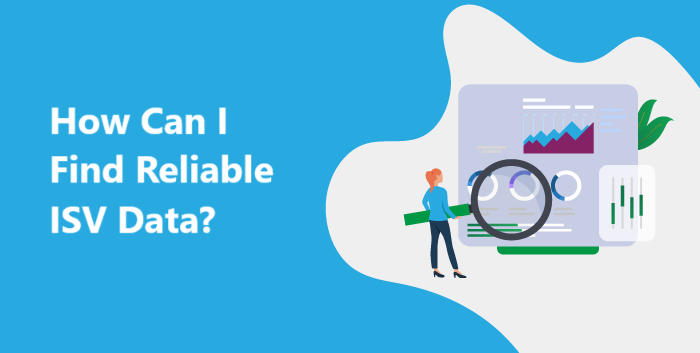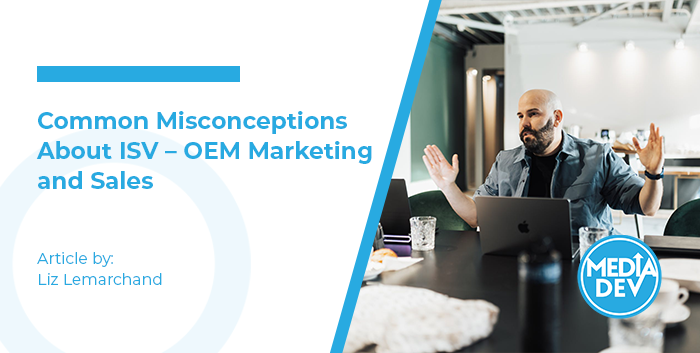In order to get good at marketing or sales and eradicate the bad reputation looming over our heads, we need to understand the role we play, and the ethical boundaries we are not willing to cross.
My husband calls marketing a bullshit job. He works on a certified organic, open-sea fish farm producing Mediterranean sea bass for human consumption. Let’s just say that his job is very physical, (lifting heavy bags of fish food, moving equipment, harvesting the fish manually with hand-held nets…) and he sees the fruits of his labor in a highly tangible way—the fish live or they die as a direct result of the work that he does. My job as a B2B software marketer is not nearly as linear, and it’s true that a direct return on investment can be hard to calculate when sales cycles can be upwards of 12 months. And that’s in the best case scenario when a B2B marketing campaign is a success; when it fails and we all lose money, we would have been better off staying home and watching TV.
It’s hard to convince my husband that my job has value. He thinks my work consists of sending and receiving emails, and the fact that I do this sitting down takes the cake. I should probably mention that my husband is a skeptic (probably because he’s French); he says he’s a realist, and like many French men, he is a critical thinker, taught to question everything from all angles.
Like many people outside of our profession, my husband does not understand the difference between marketing and advertising; he believes them to be one and the same. And if there’s one thing he hates, it’s ads. On many occasions, he has said that any person who would buy something because of an ad is an idiot… and he certainly would never recognize how his own buying patterns and brand fidelity could be influenced by great marketing. I don’t think my husband is alone in his mindset about marketers. My mother, a former elementary school teacher, laughed when I told her “I work in marketing,” because she said that was a catchphrase used by 1980s customer service reps at the local department store to describe their positions. But whether or not you value marketing as a service, it is present in all aspects of our daily lives whether we choose to see it or not.
The popular television series Mad Men (set in 1950s America) has not helped the reputation of marketers either. Through a combination of slick lobbying, shady inside deals, and unethical business practices, the male-dominated marketing and ad scene is made to look like a dog-eat-dog world. But while the world has changed considerably since that time, the image of the marketer as being capable of spinning key messages to hide the truth about low-quality (or downright harmful) products only for their own personal (monetary) gain, has not. Marketing is considered a “necessary evil” by many; an undeniable rite of passage for those looking to sell product.
My own experience (which pushed me to take a 5-year hiatus from the profession) is a case in point. After college I landed my first job with a huge multinational marketing and communications mammoth, working in their public relations department in Washington, DC. For a while, I managed some great clients and was happy working on successful outreach programs. But as is true with most marketing agency gigs, you don’t always get to choose the projects you work on. When I needed to put together a press book for a client whose product had recently been proven to cause cancer by the FDA and was seconds away from being pulled from the shelf, I started to question my own ethics. Was creating crisis communications and spin for bad products really what I saw myself doing?
I answered that question pretty quickly and found my solution by dumping the entire project on the desk of an intern I had recently hired, then handing in my resignation letter before packing a backpack and jumping on a plane for the Caribbean. Seriously. That’s what I did. It was an extreme response to a situation that I felt would eat me alive if I didn’t get out, but I don’t regret it for a second. Traveling abroad helped open my eyes to new cultures, people, languages, and perspectives. All of which have helped me grow as a marketer. Understanding what makes people tick and honing in on the “what’s in it for me” when creating marketing messaging is only possible when you take the time to really get to know your audience; and if you are marketing your product globally, you need to get out there and see the world. Empathy is the key to good marketing, but that can only come when, as a marketer, you consciously choose not to be one of the bad guys consumed by making money at the cost of the health and wellbeing of your target audience.
And let’s face it. Marketing is life. It is all around us all the time. It is inside of us whether we consider ourselves to be a marketer or not. The clothes you choose to wear, your hairstyle, the car you drive, the laptop you own, the software you use, the books you read; the products we buy are a reflection of who we are, or who we want to be. We market ourselves in job interviews, and in our love relationships. We try to market vegetables to our children to get them to eat them. Marketing is an art of persuasion and we are doing it consciously and subconsciously all the time whether we realize it or not.
Moreover, marketing is the backbone for any sales strategy. Sales and marketing are like two peas in a pod—they cannot be separated one from the other. Since marketing is a support for sales, and should help sales reps sell, they are integrally linked. Perhaps because of this hand-in-hand relationship that sales and marketing have, sales professionals at large also suffer from the same bad reputation as their marketing counterparts. Think of the car salesman that sold you a lemon, or the guy selling $5,000 vacuum cleaners to little old ladies. I once knew a sales guy who was nothing short of a liar. He was the type of guy who could have sold anything to anybody. He would play on your weakness, and position himself as having THE solution to your problem, regardless of the fact that he didn’t actually possess the solution he was selling…
It’s also rare that I come across a client who hasn’t been disappointed by a marketing firm they’ve worked with at some point in the past. I think that everyone who has hired an outsourcer or worked with a marketing consultant at some point in their careers has had a less than fantastic experience at least once. I equate it to online shopping. Sometimes you order stuff that’s just perfect; other times, you aren’t entirely satisfied and feel like you’ve been ripped off. It happens. That doesn’t mean you shouldn’t ever attempt the experience again in the future, but certainly, you’ll be on guard for the pitfalls the next time around.
In order to get good at marketing or sales and eradicate the bad reputation looming over our heads, we need to understand the role we play, and the ethical boundaries we are not willing to cross. Whether your orientation is B2C or a B2B, it makes no difference. Whether you are marketing B2B software solutions or any other product on the planet, you need to get clear with your why. You will never get good at sales and marketing if you don’t believe in what you are doing. You must truly believe that what you are doing has value and that you must give that value to your ideal customer. If you do this, that inspiration will come across in every piece of marketing material you publish, and in every campaign you design and execute. It certainly helps if you choose the company you work for wisely—or if you create your own, that you believe in your niche.
But despite all of that, I don’t think I will ever convince my husband that marketing is not a bullshit job. He believes that the world would be fine without it, and in a way, he’s probably right. I mean, if the zombie apocalypse were to take over the earth tomorrow, would marketing still be relevant? Probably not. Would eating be? Yes. So in that sense, it’s certainly not going to save the world. However, is there value in what most marketers do? Absolutely. It is important as a marketer though to keep things in perspective. We have the ability to make the world a little bit better, even if we don’t eradicate hunger in the process (although some companies do!) We have the opportunity to be great and to shine and to inspire; but not if we’re in it just for a paycheck at the end of the month. Not if we don’t care. Not if we aren’t convinced that what we do matters.
For me, the most important driver behind what I do now as a B2B software marketer is the fact that technology changes the world and has the power to make it a better place. Technology is helping cure disease; it is enabling people without limbs to walk; it has given us instantaneous access to volumes of information through which we can make better decisions, and is solving complex world challenges such as climate change, overpopulation, and pollution. Technology helps bring people together and is changing our lives for the better every day. I remember growing up when I got my very first computer. It was a Commodore PET that I set it up in my room to pretend that I was a corporate executive, preparing to receive an important client. At the time, not only was there was no internet, but the computer itself could only run one basic program at a time that took hours to load through an integrated cassette recorder; in hindsight, it was a rudimentary system with a billion times less computing power than your average smart phone today, but at the time, it was revolutionary. I dreamed of having a camera set-up outside of my door so that on my computer screen I could visualize anyone approaching my room. Of course, nowadays we all have webcams and everyone knows about the existence of cloud-based video surveillance, but at the time I was dreaming about technology that did not yet exist. I desperately wanted to invent a revolutionary new product, but I had no idea how to go about doing that. I also had been taught the false belief that only skilled engineers can become inventors, so I lost touch with that dream as I grew older. What I didn’t lose was a passion for technology.
Technology has already changed our lives in such a profound way it’s almost hard to remember a time when it didn’t exist. And while startup software vendors are coming out with innovative new solutions every day, 90% of them will fail within the first 5 years of existence because of poor product-market mix. The truth of the matter is that most developers don’t have a clue how to market their solutions, which is the exact reason why those solutions don’t reach their intended audience. The fact that those solutions will never make it to become the next revolutionary development is a shame in my eyes. We will never know what that technology could have done to make our lives better, easier, or more enjoyable. And that is all due to the fact that many developers and inventors have the false belief that innovation is enough and that the product will sell itself. But it never does. No product in history has even become a sensation with zero marketing. And that’s not my opinion, it’s a fact. Innovation and marketing are the keys to having a successful product; if either one of those pieces is missing, the product won’t sell.
Which brings me full circle back to my original point. If you want to destroy the bad reputation that’s looming above your head as a sales exec or a marketer, you have to find what you are most passionate about and focus on that. Or if you are developing a software product and you want it to become the next Google, you need to rid yourself of the false belief that you don’t need marketing in order to sell it. It is impossible to provide top-quality work for something that you are only partially interested in. It’s better to specialize in your niche and become outstanding at what you do so that you are guaranteed to provide exceptional value to your customers. And if you are reading this as a marketer and you don’t FEEL it—now’s the time to get out. Just like I fled my job back in 1999 because I couldn’t adhere to an imposed unethical mindset. I firmly believe that life is too short to do a job that you hate. So find another vein, another firm, another client, another project, make one of your own, or change the one you have. It isn’t worth sacrificing your well-being working on anything you are less than utterly passionate about. You always have a choice.
And on the contrary, if you are 100% ready to move full speed ahead despite the inherent obstacles that are likely to get in your way—go for it! It’s the passion that a handful of marketers bring to the table that will help differentiate us from the crowd. Great marketing starts with using your passion for the job to add value to each and every customer. When you love what you do, you are more likely to do it well. Be one of the people that can make a difference because you believe in doing so. The rest will follow.
Are you interested in learning more about up-leveling your skill-set around B2B software marketing?








